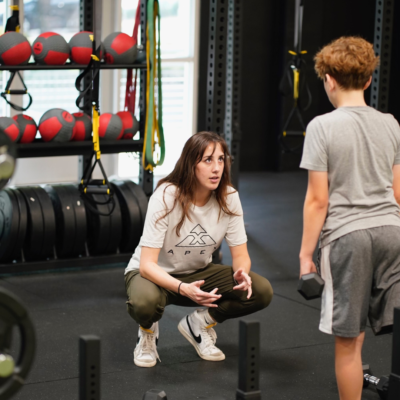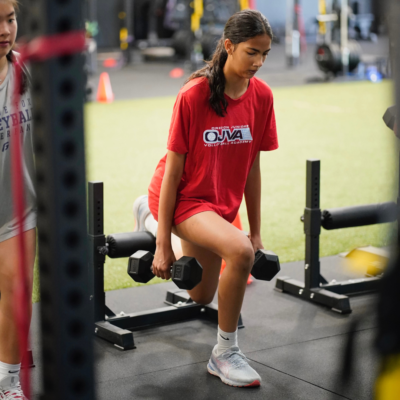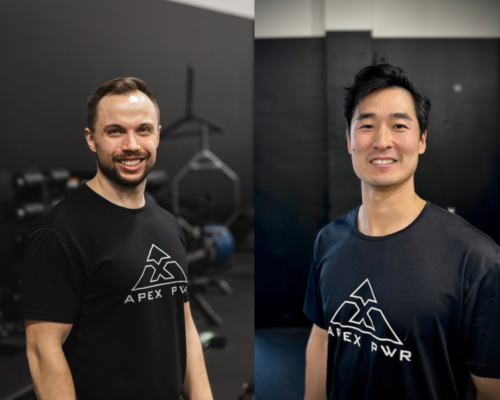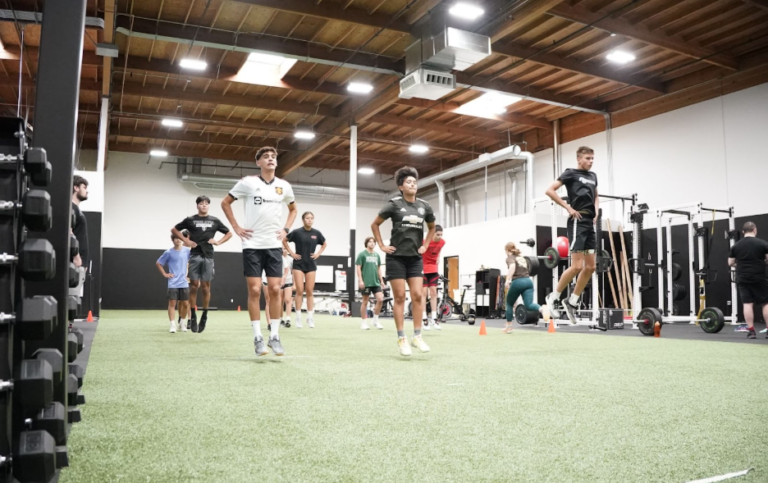What Age Is Safe to Start Strength Training? A Guide for Parents of Young Athletes in Tigard, Oregon
As summer approaches, parents of young athletes across Tigard, Beaverton, and the greater Portland area are searching for ways to help their kids stay active and level up their athletic development during the off-season.
For many families, this means strength training — but there’s still a question that looms large:
“How young is too young to start lifting weights?”
At APEX PWR, this is one of the most common questions we hear from families eager to give their athlete a competitive edge, while also ensuring they’re training safely.
Here’s the short answer:
Youth athletes can begin strength training as early as age 6–8, when it’s done under the right supervision and with age-appropriate programming.
Now let’s unpack the long answer — with insight from experts, myth-busting facts, and an inside look at what makes APEX PWR a trusted leader in youth athlete training in Tigard, Oregon.

Why Strength Training Early Makes Sense for Youth Athletes
Whether your athlete is chasing a starting spot, building back from an injury, or just beginning their sports journey — strength training builds the foundation.
Done correctly, resistance training supports:
- ✅ Injury prevention (especially to vulnerable joints like the knees)
- ✅ Faster, more efficient movement
- ✅ Improved confidence on the field or court
- ✅ A stronger athletic base for long-term development
And it’s not just about lifting weights — it’s about building body awareness, motor control, and movement mechanics.
For sports like volleyball, baseball, basketball, football, and soccer, developing power, speed, and resiliency starts with smart, intentional strength work.

Debunking the Myth: Will Weight Training Stunt Their Growth?
Let’s set the record straight:
No, strength training does NOT stunt growth.
That myth has been debunked over and over by pediatricians, sports scientists, and physical therapists.
In fact, research shows that kids who begin structured resistance training:
- Experience fewer sports injuries
- Move more confidently during competition
- And develop stronger bones and joints
The key? Supervision. Programming. Proper technique. And that’s exactly what we deliver at APEX PWR.

Hear from Our Experts 🎥

In a recent video from our youth training team, Coach Iris asked two of our trusted experts — Coach Yuji (CSCS, DC) and Dr. Josh Davis, DPT, CSCS, OCS — the big question:
“What age is safe to start resistance training?”
“I think they can start at any age,” said Coach Yuji. “The main thing is finding a fun environment to safely interact with heavy implements. That way, they can start to develop a long-term, healthy relationship with resistance training.”
“It’s a common misconception that weight training isn’t safe for kids,” added Dr. Davis, DPT. “But when done right, it’s incredibly effective. At APEX, we help kids as young as six move better, get stronger, and play with more confidence.”
📺 Watch the full video here: YouTube — When Should Kids Start Resistance Training?
Why Summer Is the Perfect Season to Start Training
Summer break is more than just a time off from school — it’s an opportunity to help your athlete build their base and come into next season stronger, faster, and more resilient.
At APEX PWR, our youth performance training programs are designed to:
- 💨 Build speed and explosive power
- 🏋️♂️ Improve strength and reduce injury risk
- 📈 Track movement quality and athletic metrics
- 🤝 Create a fun, empowering community of athletes
From kids as young as 8, to middle schoolers to high school varsity & college hopefuls, we provide safe, structured, progressive coaching that meets each athlete where they’re at. Outside of these group classes at our 10,000 square foot facility in Tigard, Oregon, we also provide 1 on 1 training, small group training and team training, which are all geared towards more sport specific, athlete specific needs and training. Our team can supplement any training regimen with objective testing with a variety of our technology to create more specialized protocols and track over time!
Built by Experts. Backed by Physical Therapy.
What makes APEX PWR truly unique?
We’re not just a gym. We’re a performance facility with in-house physical therapy, sport science, and customized training systems — all under one roof.
That means your child’s strength program isn’t designed in isolation. It’s crafted with performance, injury risk, and long-term health in mind.

Ready to Build a Stronger Athlete This Summer?
Whether your child is looking to rehab smarter, move better, or dominate next season, APEX PWR is here to help.
📍 Located in Tigard, Oregon, we proudly serve athletes across Beaverton, Portland, and beyond.
Let’s build their foundation now — so they’re ready for whatever comes next.
Frequently Asked Questions (FAQ)
- What age is safe to start strength training for athletes?
Kids as young as 6–8 years old can start training in a structured, coached environment. We scale programming to match development stage and skill level. We also feature training bars (~7lbs), medicine balls (as light as 4lbs), kettlebells, dumbbells and resistance bands – along with standard equipment. This allows for a variety of ways to scale any exercise to be suitable for the age and ability of an athlete. - Does weight training stunt growth?
No. This myth has been widely debunked. With proper technique and supervision, strength training promotes bone growth, an often overlooked benefit of weight training, and physical development. - Is this just for elite athletes?
Not at all! We work with beginner and intermediate youth athletes across sports — our focus is on athlete development, movement quality, and building strength safely. Many athletes start with us at younger ages and continue their development as they move through middle school, high school and even college! - What sports do you train for?
We coach athletes in volleyball, football, baseball, basketball, soccer, lacrosse, and more. Our programs are designed to support all sports. Our customized training programs (1:1, small group and team) are most ideal for parents of athletes (or coaches of teams) that seek our most personalized approach. - What about injury prevention?
Our training includes movement assessments (utilizing VALD technology), strength testing, and progress tracking — and it’s integrated with APEX’s physical therapy team should injury needs arise. We also accept and are in-network with most major health insurances! It is common for athletes to work 1:1 with one of our physical therapists at least one time per week while also participating in one of our group classes two times per week. This is one of the most comprehensive approaches we have available. - Do you offer group and individual training?
Yes! We offer team, small group performance sessions and 1-on-1 personal training depending on the athlete’s goals and schedule. We LOVE working with entire teams to create a customized, sport-specific approach. - How can we get started?
Just visit our Youth Athlete Training page or call our front desk- 971.294.2669 — and we can find the right fit.
Previous Blogs
Smoking vs. Not Lifting Weights: Which is Worse for Your Health?
Smoking vs. Not Lifting Weights: Which is Worse for Your Health? Everyone knows smoking is bad for your health. It is linked to cancer, heart disease, lung damage, and an overall shorter lifespan. The average smoker will lose 7 to 10 years of life because of the habit. But here is the shocking truth: research
Protein Deficiency: The Hidden Factor Wrecking Women’s Hormones
Protein Deficiency: The Hidden Factor Wrecking Women’s Hormones When women think about hormone health, they often focus on stress, sleep, or menopause symptoms. While those play a role, one of the most overlooked lifestyle factors disrupting women’s hormones is chronic protein deficiency. At APEX Performance Wellness & Rehab in Tigard, Oregon, we work with women
Corporate Wellness in Portland, OR: How to Help Your Organization Elevate Health, Fitness, and Performance
Corporate Wellness in Portland, OR: How to Help Your Organization Elevate Health, Fitness, and Performance At APEX PWR in Portland, OR, we believe the success of any organization is directly tied to the health, wellness, and performance of its people. That is why we provide corporate wellness solutions designed to meet the needs of companies